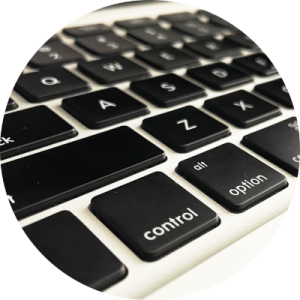Office of the University Librarian
 Uphold the mission of the University of Namibia and align the Library programmes and process in support of its vision and strategies.
Uphold the mission of the University of Namibia and align the Library programmes and process in support of its vision and strategies.
Archives and Special Collections
 The University of Namibia Archives (UNAM Archives) was established in 1994 to ensure the collection, management and preservation of the university’s institutional memory by implement a records management programme.
The University of Namibia Archives (UNAM Archives) was established in 1994 to ensure the collection, management and preservation of the university’s institutional memory by implement a records management programme.
The Special Collections also known as The Namibiana, with the mandate to collect, preserve and provide access to diverse disciplines published about Namibia including rare books or documents that are either irreplaceable or valuable.
The collection is also housing printed thesis and dissertations published by UNAM scholars.
Systems and Training
 The department provide training, guidance and manages the library’s ICT infrastructure.
The department provide training, guidance and manages the library’s ICT infrastructure.
Core functions:
Entails the development of user-profiles and the distribution of credentials enabling personnel to carry out certain tasks on the library management system, among other things.
Ensure that the library is registered for the use of subscribed databases, marketing of these databases, links to e-resources are created on the website, training for the use, and that all databases are maintained at all times.
Ensure that the website, social media, business email, and any other authorized university channels for library ICT communication are all functioning properly.
Liaise with the ICT department for the maintenance and repair of library ICT equipment.
Guided by the regulations of the university’s procurement procedures the department purchases all ICT-related equipment.
In conjunction with the ICT department, ensure the safety of all library electronic data through the process of data backups.
Department will provide terminals for access to OPAC.
Manage and maintain all library computer labs (training room, postgraduate room, open student search and data processing area)
Technical Services
 This department offers centralised services to all campus libraries and is the bedrock on which all academic programs rely. The department is organised into four sections namely: Acquisitions, Cataloguing, Digital Scholarship, and curation as well as Electronic resources (databases) and Serials.
This department offers centralised services to all campus libraries and is the bedrock on which all academic programs rely. The department is organised into four sections namely: Acquisitions, Cataloguing, Digital Scholarship, and curation as well as Electronic resources (databases) and Serials.
Core functions:
Handle all acquisitions of print and non-print information resources.
Acquire, manage and provide access to electronic resources (databases) and print serials.
Organise and provide access to the collection through cataloging and classification.
Digitise information resources in order to provide wider access and preserve rare and fragile materials.
Manage the Institutional Repository by collecting, storing, and preserving UNAM research output. The repository consists of research articles, book chapters, research reports, and unpublished full-text UNAM thesis and dissertations.
Maintain the library collection in good physical condition through repair of damaged items, binding, and other forms of preservation, e.g. digitization.
Evaluate, improve and develop the collection according to the needs of the users in collaboration with faculties, centers, and students.
User Services
 User services is a customer-centered department designed to provide library specialized services, instructional training and research-support services.
User services is a customer-centered department designed to provide library specialized services, instructional training and research-support services.
Core functions:
User-oriented & customer care service – lending materials; building library collections; instructional training & research support services
operates afterhours/during weekends
Dedicated Faculty/Subject Librarians –coordinate the selection & acquisition of print, and electronic materials with teaching academics
Execute book budgets; Collection evaluation; Information Literacy training; literature searches
Research & Scholarly support – subject experts in specialized services & tools for postgraduate, academics & researchers
User-focused & personalized reference services, information literacy training, digital presence.
Library memberships- loans, circulation, resource sharing – across campuses/beyond
Course reservations – prescribed / recommended materials
Library service assessments, marketing & promotion
Clinical services targeting student doctors, teaching hospitals, clinicians etc.







